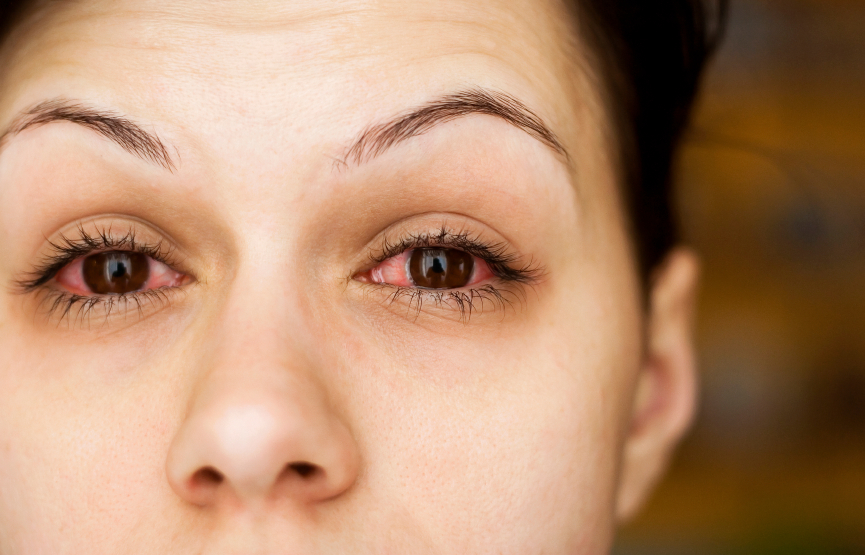With the extremely high pollen counts this spring in Kansas City we are seeing more and more people complain of itchy, watery, RED eyes. You expect this in the spring and fall, but this year seasonal allergies are affecting almost everyone. The reason is not only allergies to tree and grass pollen, but the quantity of pollen acting as a dust, an irritant to the eyes, and the extreme winds blowing the dust everywhere! I even see pollen blowing into my house whenever I open a door to the outside!
 Many people are aware that they are allergic, because most of their life they have had seasonal itching and watering of their eyes, and itching of their noses. Unfortunately, as we get older, our tear quality drops, and since our tears cannot renew or refresh our eyes, we develop inflammation of the eyes. This causes the redness and soreness. If you think you are allergic and take antihistamines, this can dry your eyes even more, making you feel worse instead of better.
Many people are aware that they are allergic, because most of their life they have had seasonal itching and watering of their eyes, and itching of their noses. Unfortunately, as we get older, our tear quality drops, and since our tears cannot renew or refresh our eyes, we develop inflammation of the eyes. This causes the redness and soreness. If you think you are allergic and take antihistamines, this can dry your eyes even more, making you feel worse instead of better.
“Dry Eye Syndrome” affects your eyes year round, not just in the spring and fall. Your eyes may feel like there is sand in them, the sunlight bothers you, you tear excessively even onto your cheeks, your eyes are fatigued or tired at the end of the day, and/or at times you have excessive clumping of dry tears, almost like mucous build up around the eyes.
What to do? Eye protection is key. If you are not allergic, eye protection is key. I recommend goggles, or biking or skiing glasses that will block the wind from blowing the pollen into your eyes. Eye wetting drops, over the counter artificial tears can keep your eyes moist and help keep them comfortable. If eye-rewetting drops do not help, then you may need a daily anti-inflammatory eye drop like Cyclosporine (trade name Restasis).
See an allergist to determine if you have allergies or not. If you are not allergic, DO NOT treat your eyes as allergic – you will make your eyes worse! If you are allergic, adding an over-the-counter antihistamine like Loratidine, Ceterizine, or Fexofenadine is often a good idea. Using allergy antihistamine eye drops, and even adding a steroid or an antihistamine nasal spray, may help.
This is battle until the pollen counts drop, usually sometime in late June. So protect those eyes, moisturize the eyes, and try to enjoy the outdoors! If you continue to struggle with chronically itchy, red eyes, call us at 913-451-8555 or email us today.
